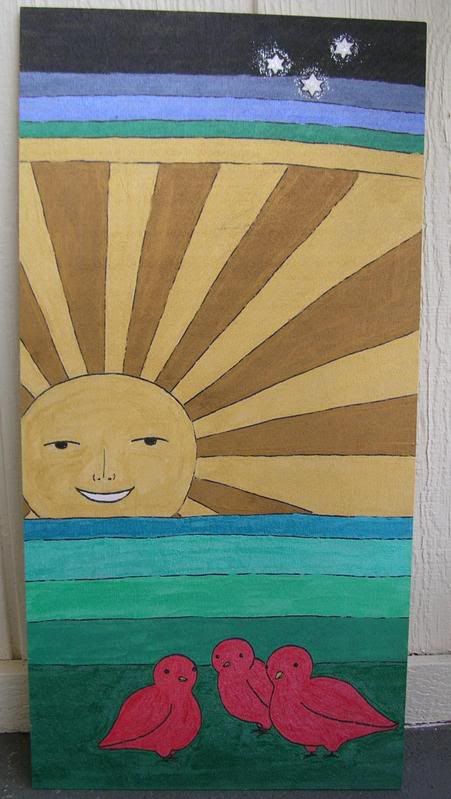Gloating is bad, m'kay?
But I do it anyway. Remember that grant I got? I received this email today:
Hey Jessica-
I was in the comp. lab bitching about how I didn't get the university scholars grant that I thought was a sure thing. And then started talking to B. and G. about grants, they mentioned you got one and I was wondering if you could give me some info about it.
thanks
So I gloated and danced around a bit because, although I don't really know this person, she has been mean to some of my friends.
This is the second time another undergrad has emailed me with something along the lines of, "How do you get all those scholarships?" And I never know how to respond. I really don't. What do they want? 10 Habits of Highly Effective Entomology Students? I mean, I'm flattered, and I did gloat quite a bit, but I don't think there is a good answer. What am I supposed to say? Has this happened to any of you?
Also, even if there is a reasonably short answer, I wonder if I should spend my valuable time and energy on it. Nobody gave me anything like that. On the other hand, I have recieved lots of advice that has helped me tremendously, and I could cobble that together into some kind of list. And this sounds marginally more entertaining than studying for my genetics final, so...
Ten Habits of Highly Effective Entomology Students:
1. Love what you do. If it's not your primary interest, you're not going to be able to keep up with your work.
2. Talk to everyone. Find out what other people in the department are working on. Ask intelligent questions about their work.
3. Read all the time. Read your textbooks. Read all the literature you can find. Watch documentaries.
4. Specialize. Pick a group and become an expert. You can change this later, but you must be able to become very familiar with one taxon.
5. Network. Pay your own way to conferences. Attend lots of seminars. Get a job in the department. Go to club events and parties.
6. Understand grants. Choose a hot topic involving chemistry or genetics that will make the university look advanced. Think of it as a $2000 advertisement for the funding organization.
7. Do your field work. Spend time photographing, drawing, and observing nature. Learn about your local ecology. Learn some technical skills.
8. Keep invertebrate pets. You will learn about natural history and gain valuable experience working with insects.
9. Think. Expand on what you're taught. Imagine experiments and try to solve problems in entomology.
10. Always be nice. It's a small field. You never know who will be on your future grant/scholarship/hiring committee.
Should I send this? I don't want to seem condescending. I'll probably just tell her how I came up with my project (I've been working on this for more than a year) and what in particular makes it kick serious ass.
In other news, I sold a big painting on Etsy. Well, I sort of gave it away for free, because I severely underestimated shipping costs. But somebody wanted it enough to pay me money for it, and that's good enough for me.
Three little birds
Sat by my doorstep...
